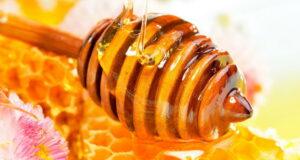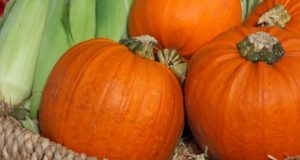|
Listen To The Article
|
Honey isn’t honey anymore, and the FDA is apparently just fine with that. Despite being pushed by Congress, food activists, the American honey industry, and beekeepers, the wise souls which hoisted the Monsanto Protection Act upon us refuses to establish new regulations on the golden gooey staple.
A Food Safety News ordered honey test was recently conducted at Texas A&M. The results are shocking, but not quite as frustrating as the FDA’s inaction on the topic. Less than 5 percent of honey on found on store shelves has reportedly been purity tested by the FDA.
Shoppers snagging honey off the store shelves at Walmart, Target, Costco, and Kroger are actually buying a pollen-free product the vast majority of the time.
Even though the label may say honey, the mixture inside those cute plastic bear-shaped containers is anything but, the bulk of the time. The FDA defines honey as any product possessing pollen. Many Chinese companies utilize an ultra-filtered process that drains all of the pollen out of the so-called honey before it goes into a container.
Why do they drain out all of the pollen you ask? To save money, of course. The ultra-filtering process removes the pollen and then shields the origins of the honey. Some Chinese companies cranking out the cheap honey substitute, being passed off as the real deal, have allegedly been tainted with heavy metals, illegal antibiotics, and pesticides. Some of the Chinese companies have also been accused of watering down the mixture with high fructose corn syrup.
There is no logical reason that America should have to purchase honey from China. We have bees in America, but struggling beekeepers are forced to compete against a far cheaper and inferior product from China.
The independent honey test ordered by Food Safety was conducted at the Texas A&M University by Professor Vaughn Bryant
. The study reportedly found that 76 percent of honey sold in some grocery stores did not contain a single drop of pollen, including samples from Giant Eagle, TOP Food, Harris Teeter, King Soopers , Kroger, Metro Market Safeway, A&P, and Stop 7 Shop.
A total of 77 percent of the honey tested from Walmart, Sam’s Club, Costco, H-E-B, and Target had the pollen filtered out. A total of 100 percent of the individual honey packets from McDonalds, Smucker, and KFC also had the pollen removed. All of the honey samples from Rite-Aid, CVS, and Walgreens contained no pollen at all. The study also found that honey purchased at farmers markets, Trader Joe’s, local co-ops, and PCC had the full amount of pollen.
Just like with raw milk, the FDA is far more concerned with adhering to pasteurization regulations than offering organic and healthy food to the public. Honey pollen purity levels should be at the leading topic of FDA policy standards. It defies common sense that a cheapo glub of sticky material can be labeled as honey when it does not contain a single morsel of pollen.
Pasteurization reportedly eliminates many beneficial components, including propolis. Raw honey has a strong track record as an anti-fungal, anti-viral, and anti-bacterial compound. Many preppers keep honey in their first aid kits and bug-out bags to use during emergency situations. Most of us are mindful of budgetary constraints when adding to our stock of supplies, but cheap pollen-free honey will not offer the health benefits of raw honey.
Since the FDA does not think that GMOs need to be labeled and believes than pollen-free gunk is the same thing as real honey, we must be even more diligent when filling up our grocery carts. The agency tasked with making sure that what goes onto our plates is safe has dropped the ball and appears to have no desire to play within the bounds of decency anytime soon.
 Off The Grid News Better Ideas For Off The Grid Living
Off The Grid News Better Ideas For Off The Grid Living





